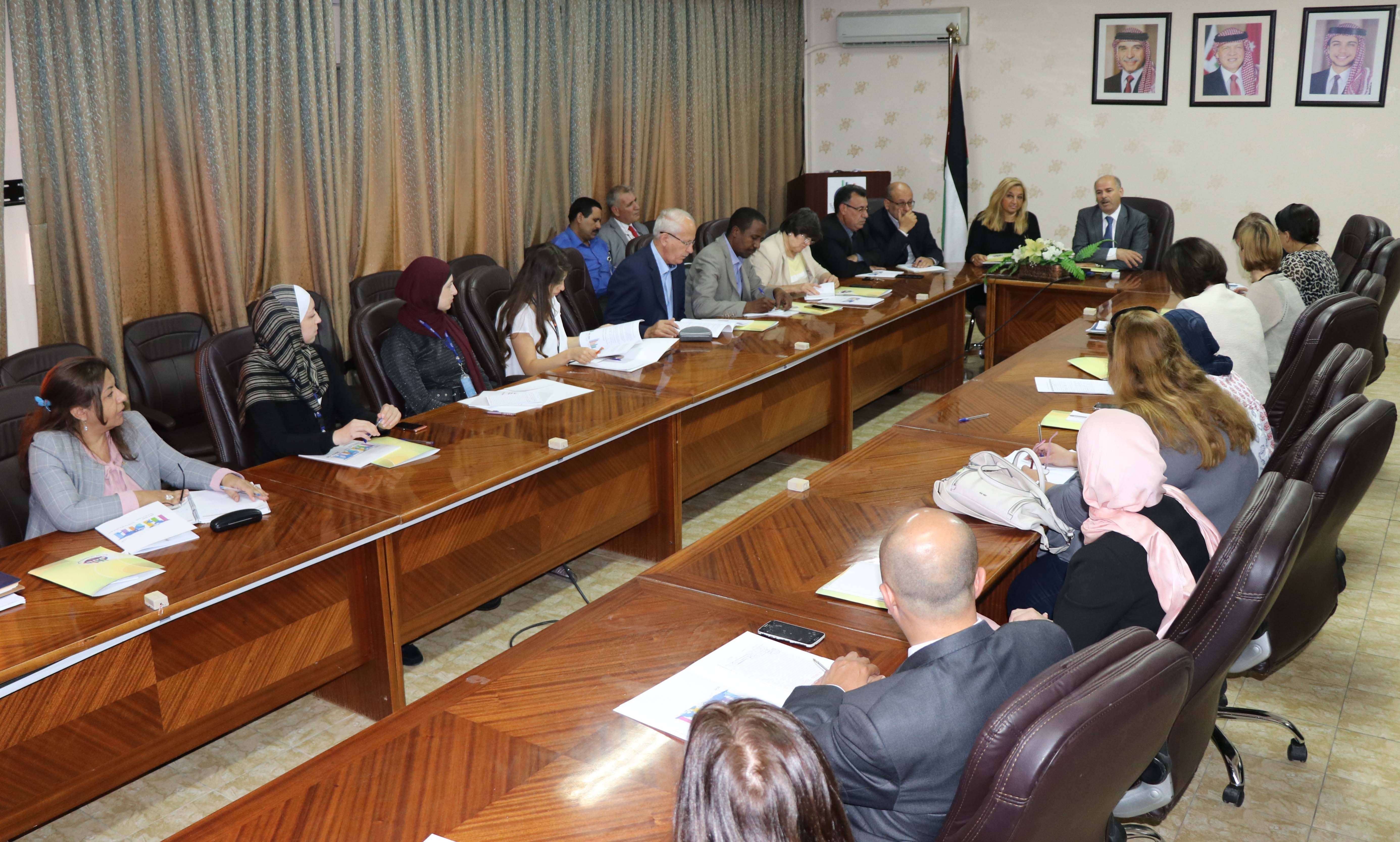Dr. Al- Zoubi: Launch of the Key Indicators Report for the Jordan Population and Family Health Survey (JPFHS)

The Director General of the Department of Statistics Dr. Qasem Said Al-Zoubi With the attendance of Secretary General of the Higher Population Council and other representatives of national institutions and International organizations concerned with family health briefed the importance of the main indicators that are available from the Population and Family Health Survey 2017/2018 in order to enlarge the benefits being used by stakeholders.
Dr. Al-Zoubi highlighted during the inauguration the factors that contributed to the success of this survey and the main important challenges that faced its implementation . He pointed out that the Department of Statistics succeeded in implementing this survey with 98% coverage, which is considered to be a high quality statistically adopted indicators that will serve the ones who work in Family Health and Reproduction field at national institutions.
USAID representatives emphasized the accuracy and quality of the information , the quick implementation of the survey and the important results that are provided, especially as they contain the indicators of reproductive health for all families residing in Jordanian territory.
The most important results that emerged in the report of the main indicators of the survey are as follows:
- The total fertility rate dropped from 3.5 children per woman in the 15-49 age group in 2012 to 2.7 in 2017-2018, which means that women in Jordan have an average of 2.7 children throughout their reproductive life.
- The prevalence of modern contraception among married women was 37%.
- The infant mortality rate was 17 per 1,000 live births and the under-five mortality rate was 19 deaths per 1,000 live births.
- 98% of births took place in safe health facilities.
- 86% of children received all basic vaccines.
During her intervention on reproductive rates for women in Jordan, the head of the Women’s Health Department in the Jordanian Ministry of Health pointed out that these indicators provided by the Department of Statistics through its implementation of the Population and Family Health Survey are very important in the work and plans of the Ministry of Health.The thing which will lead us to right reading for the national reality of family health, especially maternal and child health.It is worth to mention that the Department of Statistics carried out the Population and Family Health Survey for the years 2017-2108, which is considered a reference for specialists in the field of family health and reproduction. The meeting was attended by experts and delegates from the United States Agency for International Development, the International Federation of Trainers, the Ministry of Health, the National Council for Family Affairs, the Higher Population Council, the International Organization for Migration, the Arab Institute for Training and Research in Statistics, the United Nations High Commissioner for Refugees, the United Nations Children’s Fund (UNICEF) and the Ministry of Social Development.

